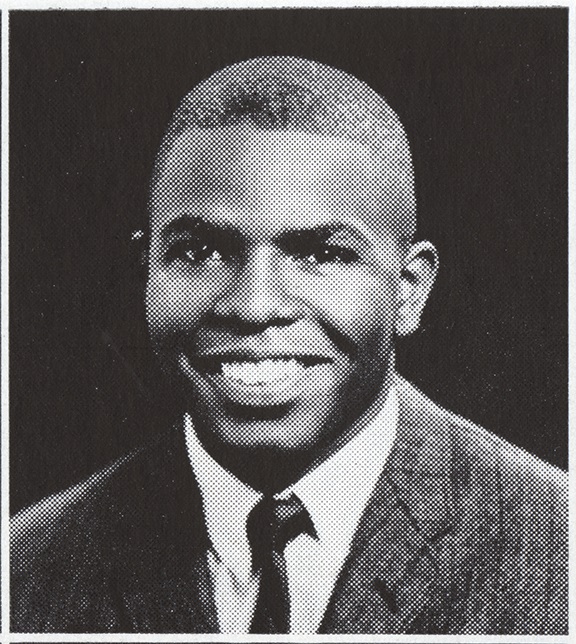13 Jan. 1942-10 Oct. 2000
Lenoir County native Kellis Earl Parker, an accomplished lawyer, activist, scholar, and musician, was born January 13, 1942 in Kinston, North Carolina. In addition to his distinguished career, Parker was also well known for several firsts: he was one of the first black students to enroll at UNC-Chapel Hill, the first black student to run for a campus-wide office at Carolina, and the first black professor of law at Columbia University.

Kellis Parker’s parents, Maceo Sr. and Novella, were business owners in Kinston and operated the only black dry cleaning facility in the city. Kinston had a thriving music scene and the entire Parker family played music: Kellis and his younger brothers Maceo Jr. and Melvin had a band together, having been taught the basics by their mother and father. Kellis’ chosen instrument was the trombone, which he would continue to play throughout his life and career, using jazz music as a tool to illuminate to his students the legal challenges facing black Americans. One of his classes at Columbia was called “Jazz Roots Revisited: The Law the Slaves Made.” Maceo, whose chosen instrument was the saxophone, and Melvin, drummer, would go on to be career musicians and collaborate with James Brown.
From his own recollection, Parker’s work as a civil rights activist began as a teenager. As the head of the band at the segregated high school he attended, Parker successfully petitioned the Kinston Chamber of Commerce to change the rule requiring black schools to march at the back of a town parade.
Parker matriculated at UNC-Chapel Hill in 1960, one of only four black students to enter as freshmen that year. He was deeply involved with the YMCA, working on numerous committees and holding multiple official positions, as well as with the student chapter of the NAACP. He was a leader in civil rights activism while at UNC with an eye on the community outside of campus; for example, coordinating the boycott of a Durham movie theater (the Rialto) that refused to integrate. In 1962, a fundraising campaign spearheaded by fellow Kinstonians raised money to help Parker travel to Greece as the first black undergraduate delegate to the United Nations International Students Conference. Parker became the first black student at UNC elected to a campus-wide position when he was chosen by the student body to attend the National Student Congress in 1963. He was also a member of the Order of the Grail, the highest undergraduate men’s honorary organization, and the Order of the Old Well.
Parker’s accomplishments continued after leaving Carolina in 1964. He went on to attend Howard University Law School, where he graduated at the top of his class, and then taught at the University of California at Davis. In 1972, he became the first black law professor at Columbia University, receiving tenure in 1975. Parker’s civil rights work remained central: he was director of the NAACP's Legal Defense and Educational Fund and produced numerous publications considering legal remedies for race issues in the United States.
Kellis Earl Parker died of acute respiratory distress syndrome on October 10, 2000 in New York City.